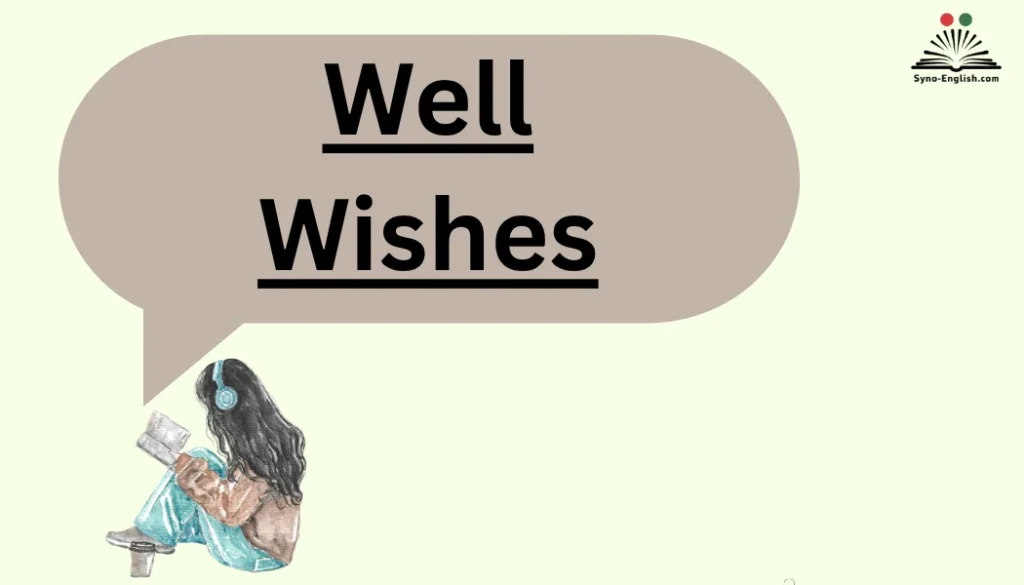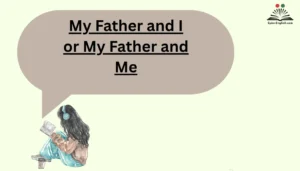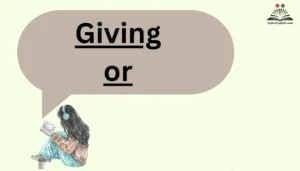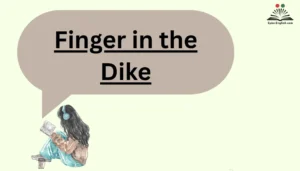Language influences how we connect, comfort, and celebrate others, shaping every phrase we choose. I often wondered about “well wishes” — seeing it on cards, emails, and social media, used casually by many people. One day, I found myself asking, Is it correct to say “well wishes”?
That question made me pause and wonder about its grammatically sound origins, realizing that understanding the conversation between culture and expression helps us communicate more meaningfully.Once, I ended a message with “well wishes,” and a friend kindly pointed out that “best wishes” or “good wishes” might carry more weight and sound more polished.
That small difference sparked my curiosity and inspired me to dive deep into grammar and cultural contexts. Words can shape how they are received—sometimes warmly, sometimes awkwardly—and this understanding helps us use language more thoughtfully and avoidconfusion
Understanding the Phrase “Well Wishes”
At its core, the phrase “well wishes” combines the adverb well with the plural noun wishes. It’s most often used to express goodwill, health, or positive thoughts toward someone else. For example, you might write:
- “Sending my well wishes for your recovery.”
- “We appreciate your well wishes during this time.”
But here’s the sticking point. Traditionally, well modifies verbs or adjectives (as in “She sings well” or “I’m well”). When it attaches to a noun like wishes, the structure feels unusual. This is why many grammar purists hesitate to embrace it as correct.
Still, actual usage tells a different story. The phrase has persisted for centuries, showing up in personal letters, literature, and now digital communication.
Breaking Down Grammar: Why “Well Wishes” Feels Awkward
To understand the controversy, let’s break it apart:
- Well – Usually functions as an adverb (describing how something is done) or as an adjective (meaning healthy).
- Wishes – A plural noun meaning expressions of hope, desire, or goodwill.
Putting them together creates a phrase where the adverb seems to be modifying a noun — not the typical grammatical pattern. By contrast, good wishes works neatly since good is an adjective that naturally describes wishes.
This small quirk leads to the central debate: Is “well wishes” just clumsy English, or has it earned its place through long-standing use?
Historical and Linguistic Roots
The English language evolves constantly, often bending its own rules. To judge the legitimacy of “well wishes,” we need to trace its roots.
- Etymology of “well”: Derived from Old English wel, meaning “in a satisfactory manner” or “in good health.”
- Etymology of “wish”: From Old English wyscan, meaning “to desire, request, or hope for.”
The combination surfaces in English texts as far back as the 1600s. Writers used it sparingly, often in letters or notes expressing concern for health.
Early Literary Example
In 17th-century correspondence, “well wishes” appeared in the context of wishing good health upon travelers or loved ones. It wasn’t the dominant form — “good wishes” held that spot — but it was recognizable and understood.
This historical footprint proves that the phrase isn’t a modern invention or a digital-age error. It’s part of English’s living history.
Expert Opinions on Correctness
The verdict varies depending on who you ask.
- Oxford English Dictionary: Acknowledges “well wishes” but marks it as less common compared to “best wishes.”
- Merriam-Webster: Lists “well-wisher” as an accepted term, implying the legitimacy of “well wishes.”
- Cambridge Dictionary: More cautious, leaning toward “best wishes” as the standard choice.
Linguists’ View
- Prescriptive grammar (rule-based) often critiques the phrase for its odd structure.
- Descriptive grammar (usage-based) accepts it since people use it widely without confusion.
In simple terms: it may not be the most elegant phrase, but it’s not wrong.
“Language isn’t about perfection. It’s about communication. If the message gets across clearly and naturally, the phrase works.” – Dr. Anne Curzan, Linguist and Professor of English
Usage in Modern English
Today, you’ll find “well wishes” in all kinds of contexts, from heartfelt notes to corporate memos. It shows up most often in:
- Health-related situations: “Sending well wishes for a speedy recovery.”
- Sympathy messages: “Thank you for your kind thoughts and well wishes.”
- Celebratory notes: “My well wishes for your retirement.”
Still, in professional or formal settings, “best wishes” or “warm wishes” usually sound smoother and more polished.
Social and Cultural Contexts
How people interpret “well wishes” can vary across cultures and situations.
- In the US: It’s commonly used in get-well cards or online condolences.
- In the UK: Less popular; “best wishes” is preferred in both casual and formal writing.
- In South Asia: English speakers often use “well wishes” in formal speeches, especially during ceremonies.
Examples in Life Events
- Weddings: “We extend our well wishes to the happy couple.”
- Graduations: “Your well wishes mean a lot as I start this journey.”
- Condolences: “The family appreciates your messages and well wishes.”
Cultural context matters. In some places, it sounds warm and thoughtful. In others, it sounds slightly awkward but still polite.
Alternatives and Better Options
If you want to avoid any awkwardness, there are several smooth and widely accepted alternatives.
| Phrase | Tone | Formality | Common Usage |
| Best wishes | Warm, positive | Neutral to formal | Cards, letters, professional notes |
| Good wishes | Friendly, casual | Neutral | Everyday messages, casual notes |
| Warm wishes | Personal, heartfelt | Semi-formal | Close friends, family |
| Kind regards | Polite, formal | High | Emails, professional settings |
| Congratulations | Celebratory | Neutral to formal | Achievements, milestones |
These alternatives offer flexibility depending on the tone and context you want.
Public Perception and Digital Trends
Thanks to digital communication, phrases spread quickly and stick — even unusual ones like “well wishes.”
- Social Media: Instagram captions and Facebook posts often feature “thanks for the well wishes.”
- Emails and Texts: People use it as a shorthand way to acknowledge support.
- Google Trends: Interest in “well wishes” spikes during flu season, graduations, and global events like the pandemic.
The Shift from Cards to Screens
Traditionally, greeting cards dominated personal messaging. Now, instant communication platforms like WhatsApp, X (Twitter), and Messenger shape how people phrase their goodwill.
This digital shift explains why “well wishes” is more common today than in earlier decades.
Practical Etiquette: Giving and Receiving Wishes
Knowing how to use the phrase gracefully can save you from awkward wording.
Thanking Someone for Well Wishes
- “Thanks so much for your well wishes during my recovery.”
- “I appreciate your kind thoughts and well wishes.”
Offering Well Wishes
- “Please accept my well wishes for your success.”
- “Sending well wishes for your continued happiness.”
Polished Alternatives
- “I wish you all the best in your new role.”
- “My warmest congratulations on your achievement.”
The key is sincerity. Whether you say well wishes or best wishes, your tone of voice and genuine intent matter more.
Final Verdict: Should You Use “Well Wishes”?
So, is it correct? The answer is yes, but with nuance.
- Grammatically, it’s unconventional yet acceptable.
- Socially, it works in casual and personal contexts.
- Professionally, alternatives like “best wishes” sound smoother.
Recommendation: Use “well wishes” when speaking from the heart in personal settings. For formal writing or professional communication, choose a more polished phrase
Conclusion
In exploring the question “Is It Correct to Say ‘well wishes’?”, it becomes clear that language is more than just grammar—it’s about connection, context, and intention. While “well wishes” isn’t grammatically wrong, it’s often seen as a less formal or polished version of “best wishes.” Still, its warmth and sincerity can make it a fitting phrase for casual or heartfelt communication. Understanding how phrases evolve across cultures and contexts helps us use them wisely, ensuring our tone matches our message.
Ultimately, choosing between “well wishes,” “best wishes,” or “good wishes” depends on your audience and purpose. Each phrase carries its own weight, reflecting different levels of familiarity and formality. The beauty of language lies in its flexibility—it lets us express sincerity, comfort, and celebration in countless ways. By being mindful of grammar, cultural nuance, and emotional tone, we can communicate in ways that not only sound correct but also feel authentic and genuine to those who read or hear our words.
FAQs
Is it grammatically correct to say “well wishes”?
Yes, it’s grammatically acceptable, though “best wishes” is often preferred for formal use.
When should I use “well wishes”?
Use it in friendly or casual contexts, like messages to colleagues or acquaintances.
What’s the difference between “best wishes” and “well wishes”?
“Best wishes” sounds more formal and polished, while “well wishes” feels more casual.
Can “well wishes” be used in professional emails?
It can, but “best regards” or “kind regards” are more common in business settings.
Is “well wishes” outdated?
No, it’s still used, though less frequently than “best wishes.”
What are some alternatives to “well wishes”?
Try “warm regards,” “kind regards,” or “best wishes,” depending on tone.
Does “well wishes” sound awkward?
It can, depending on context; tone and relationship matter most.
Is “good wishes” similar to “well wishes”?
Yes, both express goodwill, but “good wishes” is slightly more formal.
How can I make “well wishes” sound more natural?
Pair it with a sincere message or personal touch in your writing.
What’s the safest choice for formal writing?
“Best wishes” or “kind regards” are always appropriate in formal communication.

Emma Brooke is a passionate English educator, writer, and language enthusiast with over a decade of experience helping learners master the nuances of the English language. At SynoEnglish, she blends practical grammar advice with real-world communication tips to make English easier, clearer, and more enjoyable for readers of all levels.



